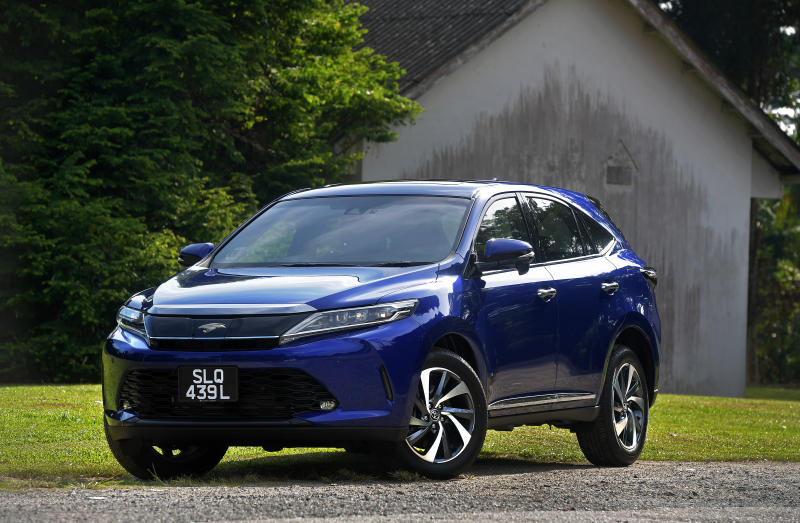Parallel-imported car sales down 14%
Sign up now: Get ST's newsletters delivered to your inbox

Toyota is the second most popular parallel import, selling 4,866 units in the first nine months of the year.
PHOTO: ST FILE
Follow topic:
SINGAPORE - The sale of parallel-imported cars slowed in the first nine months of the year as demand from private-hire operators dried up.
Heightened competition from authorised agents and negative publicity also took their toll.
According to Land Transport Authority figures, 13,312 parallel-imported cars were registered from January to September, 13.8 per cent fewer than the 15,448 registered in the same period last year.
The market share of these cars - which are sourced from overseas dealers instead of directly from car manufacturers - fell to 19.9 per cent, down from 23.6 per cent last year.
The highest market share posted by parallel imports in recent years was 23.8 per cent in 2008.
Honda remained the most popular parallel import, with 6,992 cars - mostly Vezels - sold in the first nine months of the year. Toyota followed with 4,866 units, mostly the Harrier.
Even so, these numbers were significantly lower than those in the same period last year, when 9,442 Hondas and 5,435 Toyotas were delivered.
Mr Nicholas Wong, general manager of authorised Honda agent Kah Motor, attributed the drop to weakened demand from private-hire operators such as Uber and Grab. "That's the biggest contributing factor," he said.
Flooded with thousands of unhired cars, private-hire players have put the brakes on new purchases. Grab has been enticing Comfort and CityCab cabbies to join its fold with discounts and waivers, while Uber has been in alliance talks with ComfortDelGro.
Observers said heightened competition from authorised agents may also have affected sales.
Kah Motor, for example, has since brought in Japan-made HR-V (the export name for the Vezel), while authorised Toyota agent Borneo Motors has started selling the turbocharged Harrier (which is appreciably more powerful than the non-turbo parallel import).
The German premium brands, however, have lost more ground to parallel importers. In the January to September period, parallel importers registered 131 BMWs and 1,128 Mercedes-Benzes - up from 45 and 367, respectively, last year.
Mr Michael Lim, president of the Singapore Vehicle Traders Association, said sellers have shifted to continental brands because the Japanese segment has become "too crowded... and profits have been squeezed".
Negative publicity may also have affected sales of parallel imports, observers added.
According to the Consumers Association of Singapore, the motor industry had the highest amount of reported losses at $2.74 million - accounting for more than three-quarters of the total amount consumers lost in non-delivery of goods and services last year. The bulk of losses were attributable to parallel importers and used-car dealers.
Nanyang Business School's Adjunct Associate Professor Zafar Momin, previously an automotive expert with the Boston Consulting Group, said: "Typically, parallel imports are driven by consumer preferences for variants of car models that may not be available through the authorised dealers.
"If this market share reduction becomes systemic, it could also point to the need for parallel importers to up their game in terms of providing a better value proposition to customers against entrenched dealers."

